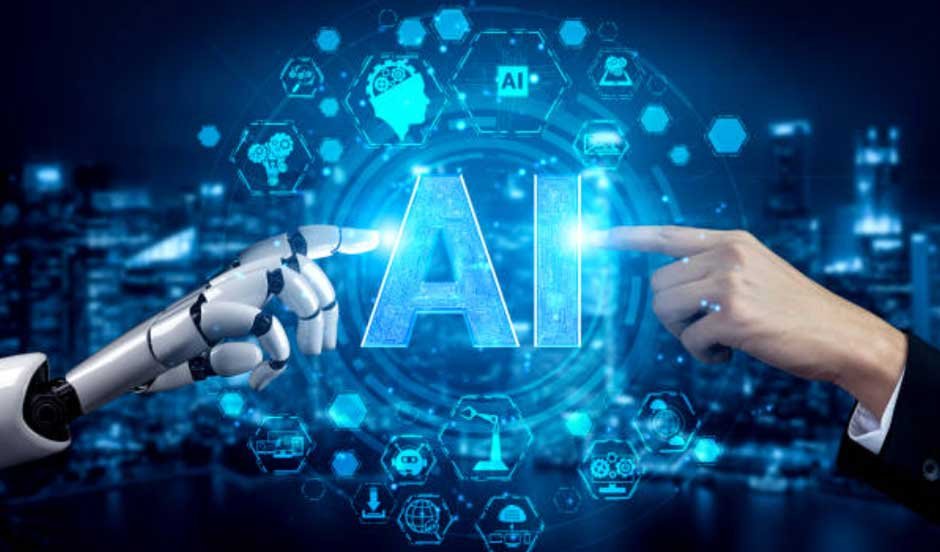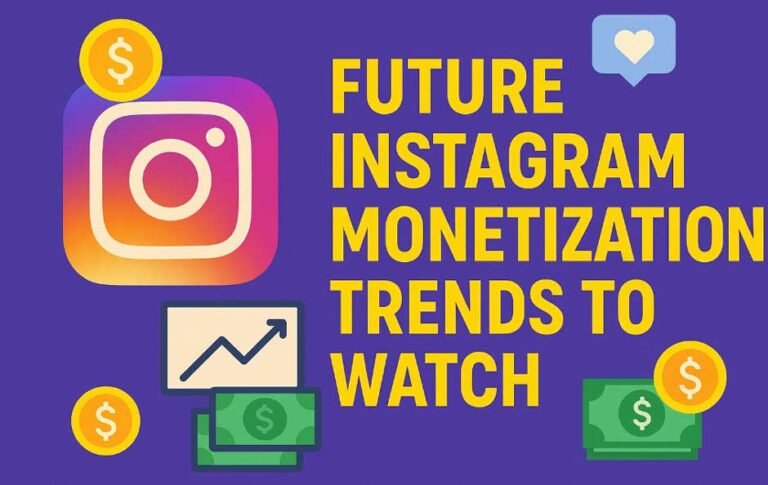Future of AI in Digital Marketing: From Data to Decision-Making
Introduction
Artificial intelligence has taken an approach that redefines all aspects of brand audience engagement and marketing optimization. With innovations in artificial intelligence technology, decision-making, intelligent and evidence-based, can be done by a marketer anywhere and at any time without the extensive time formats of marketing practices. This article discusses what the future holds for AI in digital marketing, its current influence, and how it is transforming everything from customer segmentation to content writing. Trained on some of the expert views and scientific consensus complements in this complete guide on the innovations and challenges that face the adoption of AI.
What does A.I. mean to digital marketing?
Before diving into its applications, it is essential to answer: What is AI in digital marketing? It would refer to machine learning algorithms, natural language processing, and data analytics at the core of marketing automation and optimization. It encompasses real-time insights, predictive analysis, and personalization at scale.
Personalization and Customer Segmentation
AI in Digital Marketing makes it possible for marketers to generate highly personalized experiences from their large datasets. Algorithms will analyze user behavior, preferences and purchase history to create individualized content and product recommendations. It is an enormous advancement beyond traditional segmentation by adjusting a campaign dynamically in real-time.
Predictive Analytics and Forecasting
AI in digital marketing makes it possible for businesses to predict customer behavior, identify upcoming trends, and optimize what time their campaign will run. For example, tools such as Salesforce Einstein and Adobe Sensei predict the expected outcomes of a user’s interaction with an email, advertisement or website: the predicted engagement and return on investment.
Chatbots: Business Messaging with Consumers Conversational Marketing
AI chatbots take customer support to the next level by giving their service around the clock, advancing lead generation, and answering queries instantly. Using natural language understanding (NLU), these AI chatbots will accurately interpret user intent and deliver a very human-like interaction, leading to improved customer satisfaction and reduced operational costs.
The Role of AI in Digital Marketing Campaigns
Content Creation and Optimization
AI can produce social media posts, write subject lines for emails, and even draft blog posts using tools like Jasper AI or Copy.ai. These systems have learned from existing high-performing content and produce messages tailored to an audience.
The AI tools further analyze metrics on engagement to give suggestions for improvements on the content or repurposing the existing assets for other channels.
Automated Ads
Using AI, programmatic advertising allows the buying and placement of ads in real time. AI-powered ad generator tools streamline this process further by automating the creation of ad content based on target audience data. The whole guess-and-gather parts of advertising are eliminated when all possible variables are taken into account to show ads to the right people at the right time across the different platforms. AI makes an evaluation by considering factors like location, browsing behavior, and demographics to optimize the bid and placements.
Search Engine Optimization
AI-focused SEO devices like Clearscope, Surfer SEO, or MarketMuse enable marketers to find the proper keywords, enhance the structure of the content, and also help in recognizing user intent. AI also does especially well in voice searches and featured snippet targeting.
AI and Social Media Marketing
Sentiment Analysis
AI in Social Media Marketing can watch mentions of their brand and even judge the sentiment of customers concerning the brand across various social media platforms. This shows the brands how they are viewed and also allows them to answer any negative feedback given or modify their messages.
Audience Targeting
AI uses engagement history, hobbies, and demographics to create segments for advertisements on social networks. This enables marketers to deliver hyper-relevant ads, housing some specific audience sections.
Being Efficient in AI Remains a Vital Aspect of Digital Marketing.
Greater Speed
AI automates repetitive work, such as data analysis, A/B test, and content scheduling, allowing marketers to focus on the strategy of making things happen and be creative.
Enhanced Decision Making
Real-time insight and predictive analytics will help marketers make data-driven decisions that help improve performance at lesser costs.
Better Customer Experiences
In this regard, AI can provide more customer satisfaction and improve brand loyalty because everything it brings is personalized, timely, and relevant.
Easier Automated Marketing Challenges
Despite their merits, such interventions have their challenges in the active usage of AI in digital marketing:
Data Privacy and Ethics Concerns
Collecting and analyzing personal data invariably poses questions about privacy and consent as the issues of data protection compliance with such requirements as the GDPR and other similar data protection mandates.
Algorithmic Biases
AI systems can carry over existing biases if trained on unbalanced datasets. So, regular audits will be required, as well as close attention to training in diversity of data.
Skills Gap
Marketers will need to move through an upskilling program and develop great AI literacy training in order to put the full weight of the technology to work. This would involve becoming competent with AI tools, interpreting data outputs, as well as making business-level decisions based on AI insights.
Use of AI in Digital Marketing: Present and Future
In the future, the AI machine will have increased adaptability and interface with different marketing software and tools. Among the innovations that may come around are:
Hyper-Personalization at Scale
AI will allow brands to deliver experiences tailored not just to segments but to individuals using real-time behavioral data and predictive modeling.
Voice and Visual Search Optimization
With the dawn of smart assistants as well as image recognition technologies, AI will come into play in the optimization of content for voice and visual search.
Cross Channel Integration
AI systems of the future will merge insights from email, social media, web, and offline interactions, establishing a consolidated view of customer behavior.
Cases of AI Successful Implementation in Digital Marketing
Netflix
According to AI, Netflix analyzes viewing behavior and offers personalized recommendations to meet its objectives of keeping users engaged and lowering customer churn.
Amazon
The AI recommendation engines, along with product search and dynamic pricing strategies, powered Amazon to rule the e-commerce realm.
Sephora
Sephora employs AI chatbots and virtual try-on tools to enhance the online shopping experience, combining AI with augmented reality for greater user engagement.
Frequently Asked Questions (FAQs)
What is AI in digital marketing?
AI in digital marketing uses artificial intelligence technologies to optimize, automate, and personalize marketing efforts by way of data-driven insights.
How is AI used in digital marketing?
AI is used for content creation, customer segmentation, predictive analytics, chatbots, programmatic advertising, SEO optimization, and performance tracking.
What are the merits of adopting AI within marketing sectors?
Merits comprise efficiency at increased levels, experiences personalized to the customers under consideration, higher returns on investments, more accurate forecasting, and less manual effort.
Is AI replacing human marketers?
However, AI does not intend to replace marketers. Instead, it raises their proportion of capabilities. It handles data-heavy tasks that supposedly form the worlds of creativity and strategy around marketers.
What will AI look like in the future of digital marketing?
For the future, include hyper-personalization, advanced automation, voice and visual search optimization, and unified customer experience across all channels.
Conclusion
The adoption of AI in digital marketing is considered a trend but the beginning of a major change revolutionizing the way businesses connect with consumers. Data and automation bring opportunities where marketers can deliver very relevant, specific, and timely messages that translate into real engagement.
As these tools become richer and access to data more elegant, the future of AI in Digital Marketing is bound to bring in sophisticated strategies and even higher customer satisfaction. Whether content optimization, chatbots, or predictive analytics, artificial intelligence is here to make digital marketers an even more inseparable partner in success.







